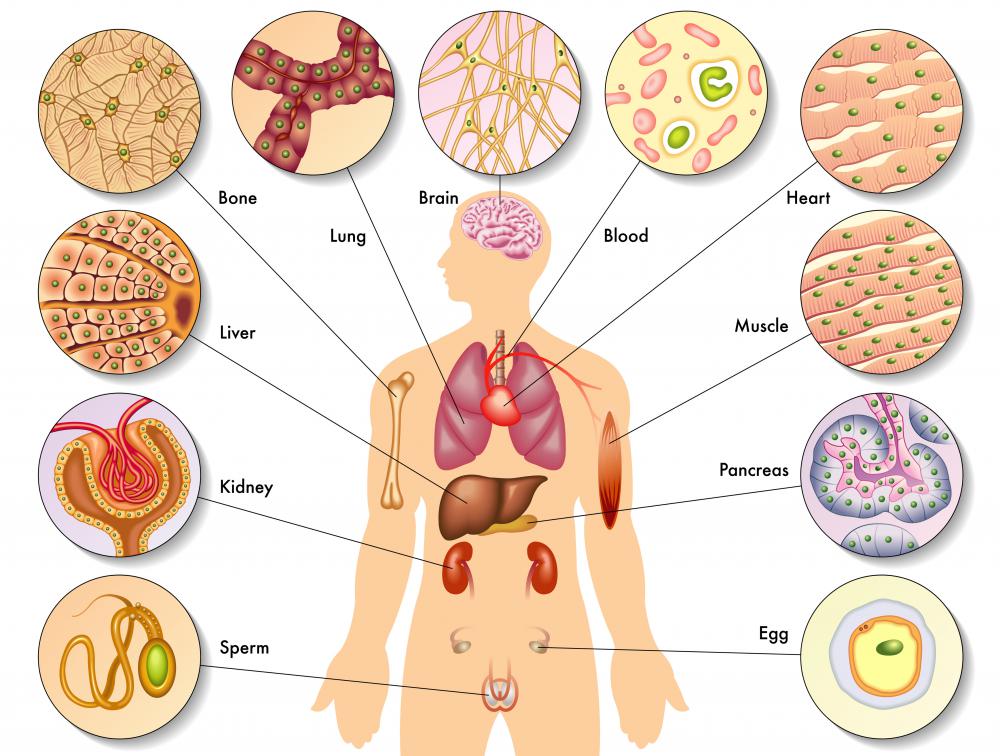At WiseGEEK, we're committed to delivering accurate, trustworthy information. Our expert-authored content is rigorously fact-checked and sourced from credible authorities. Discover how we uphold the highest standards in providing you with reliable knowledge.
What Is an Immunomodulator?
An immunomodulator is a substance that either suppresses or activates the body's immune response. These substances are separated into two groups: immunosuppressants and immune activators. Immunosuppressants inhibit the body’s natural immune response, while immune activators generally condition or reprogram it to target a specific disease-causing agent.
Immunomodulators can be produced in synthetic form or naturally in the body. Cytokines are examples of innate immune mediators. Synthetic versions are available in either immunosuppressant or immune activator forms. A suppressant immunomodulator works by inhibiting the activation of critical immune system agents such as calcineurin and the formation of thymus cells (T-cells) and antibodies. In comparison, an activating immunomodulator uses the process of adaptive immunity to recondition lymphocytes and T-cells to kill known pathogens or tumor cells.

Cyclosporine and methotrexate are commonly used synthetic immunosuppressors. Methotrexate is used in patients with autoimmune ailments. Lupus and rheumatoid arthritis are examples of autoimmune disorders that cause the patient's body to attack his or her own cells. Eventually the targeted cells and tissue become damaged after repeated attacks.
The process of organ rejection is similar to autoimmune dysfunction, except the immune system targets the transplanted organ rather than the body’s own cells. Organ transplant recipients take suppressant drugs such as cyclosporine, tacrolimus and sirolimus to prevent organ rejection. Nearly all transplant recipients, except a rare few, must adhere to a strict daily regime that involves taking these medications for life. Not taking the medications as prescribed will almost always induce organ rejection, which could lead to death. Due to the medication’s toxic side effects, immunosuppressors should only be used in cases of severe autoimmune dysfunction or organ transplantation.
Immunomodulators that activate the immune system include vaccines and cancer immunotherapy. Vaccines work by exposing the patient to weakened or inactive forms of certain bacteria and viruses. The immune system then adapts by producing antibodies that are programmed to immediately kill the introduced pathogen once it re-enters the body, which is called adaptive immunity.
Cancer immunotherapy is very similar to pathogen vaccination. The difference between the two therapies is the agent in which adaptive immunity is induced. Vaccines use microorganisms, while cancer immunotherapy uses microorganisms and enhanced immune cells. Microorganism-based cancer immunotherapies are used to combat some forms of cervical and liver cancers caused by viruses. A cell-based immunomodulator, on the other hand, uses enhanced immune cells such as cytotoxic T lymphocytes (CTLs), dendritic cells (DC) and natural killer cells (NK cells) to target and destroy the patient’s cancerous cells.
AS FEATURED ON:
AS FEATURED ON:











Discuss this Article
Post your comments